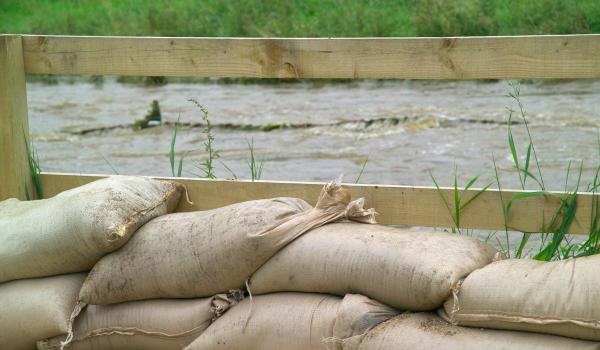Drainage
Drainage of water is one of the most common areas of dispute between rural neighbours. Drainage issues generally fall into the realm of Common Law which forms the basis of the legal system. It always applies unless it is specifically altered by a statute passed by the Provincial or Federal Governments. Common Law disputes are arguments between landowners, and if they cannot be mutually resolved, final solutions have to be determined through the courts.
Most of these questions can be addressed by application of the general rules of water drainage and flow control and diversion that have been applied in common law for hundreds of years. The following sentence summarizes these rules and conditions:
A landowner may reroute water in any fashion he desires within the boundary of his property, provided that he continues to allow water that has been entering the property to continue to enter in the same location and quantity, and also provided that he continues to allow the water to exit in the same location and in approximately the same quantity as prior to the modifications.
If a landowner violates these rules, he is considered to be creating a nuisance and may be subject to civil action by an affected landowner.
Frequently Asked Questions
| Why isn't the Township responsible for draining my property? |
|
Water drainage is considered to be a characteristic of a parcel of land when it is purchased, and is a factor in land value or lack of value. The Township, by law, is prohibited from expending public resources on private property unless it is for a clearly definable public benefit. Installing, repairing, or improving drains in a private yard would result in an increase in the private property value at the general taxpayer's expense. This remains the case even if the water is flowing from a drain pipe under a roadway, although the Township may work on those portions of the drain that are located within the right-of-way owned by the Township. |
| Why doesn't the Public Works Department make their road ditches deep enough to outlet my tile drains or drain surface water from my land? |
|
The Public Works Department is not required to dig their ditches deep enough to provide outlet for tile drains. Road ditches are just another form of private ditch, and the road authorities are only obligated to dig their ditches deep enough to handle the surface water off their own roads. They are not required to take surface water from surrounding land. There is no right of drainage of surface water even if it is in a road ditch, unless the ditch is part of a Municipal Drain and access for tile drains is permitted. That is, an owner of lower land can block the passage of ditches that are not natural watercourses or part of a Municipal Drain. For normal road ditches, permission must be obtained from the Public Works Department to outlet tile drains into them. |
Click on the link below to access a Ministry Factsheet examining some Common Law Drainage problems rural neighbours face.
Factsheet: 10 Common Law Drainage Problems between Rural Neighbors
Factsheets are not a substitute for good legal advice. Always consult a lawyer if a professional legal opinion is needed.
Municipal Drains
Physically, a municipal drain is simply a drainage system. Most municipal drainage systems were constructed to improve the drainage of agricultural land. However, they also remove excess water collected by other properties in rural areas. Municipal drains are created under the authority of the Drainage Act.
Additional Information |
Flooding

If you are concerned about flooding on your property, please contact the Municipal Office for information on the availability of sandbags.
Please refer to the Flooding page for more detailed information.
Sandbagging |
| Sandbagging Instructions Video on How to Build a Proper Sandbag Wall |
Forecasting and Flood Warnings |
|
The Rideau Valley Conservation Authority and the Mississippi Valley Conservation Authority closely monitor snow pack, weather events, water levels and water flow in their watersheds to warn property owners when there is potential for flooding, and to keep them updated during flooding emergencies. For flood forecasting and warnings for the Rideau Valley watershed, sign up for an e-newsletter at the following link: https://www.rvca.ca/about-us/join-our-mailing-lists. For flood forecasting and warnings for the Mississippi Valley watershed, visit Mississippi Valley Conservation Authority. |
Additional Flooding Resources |


